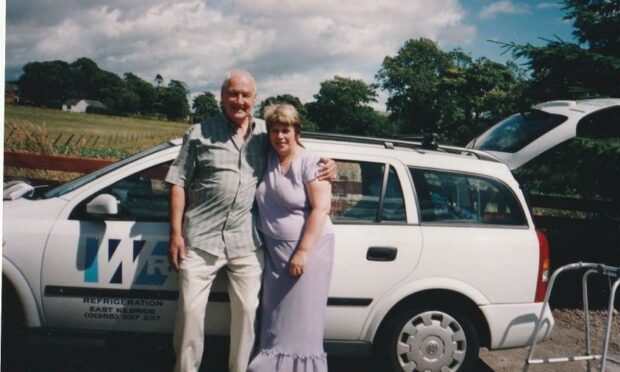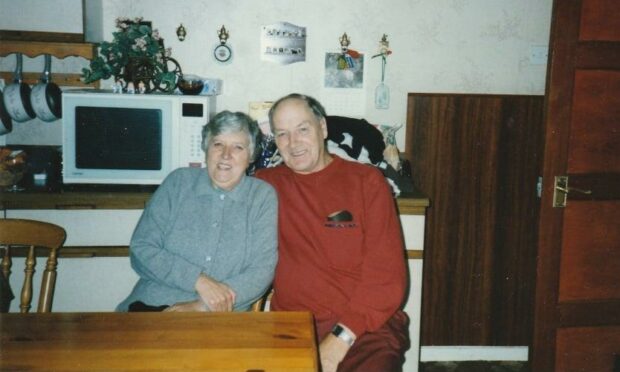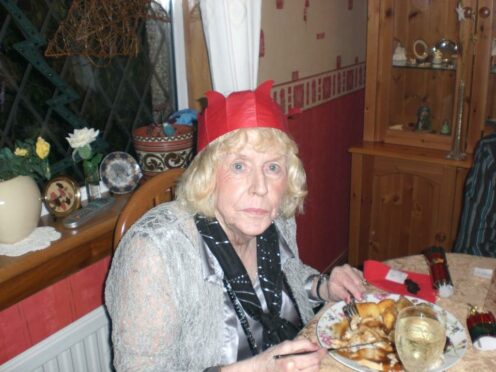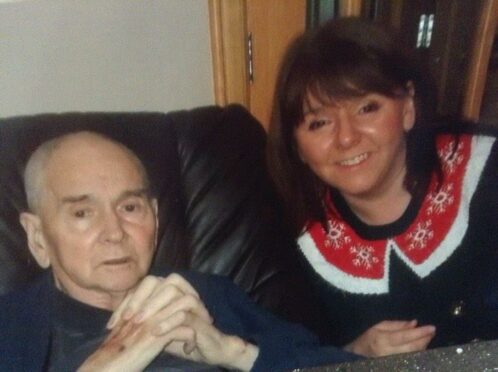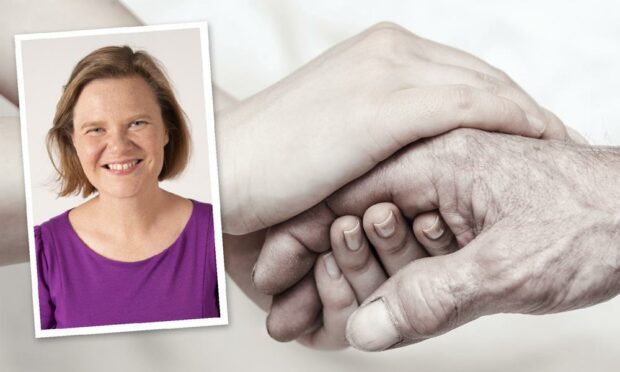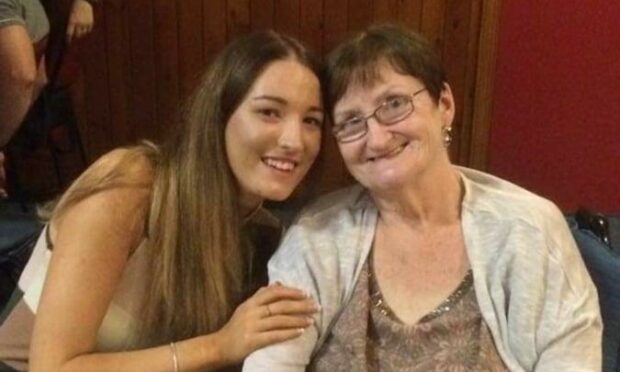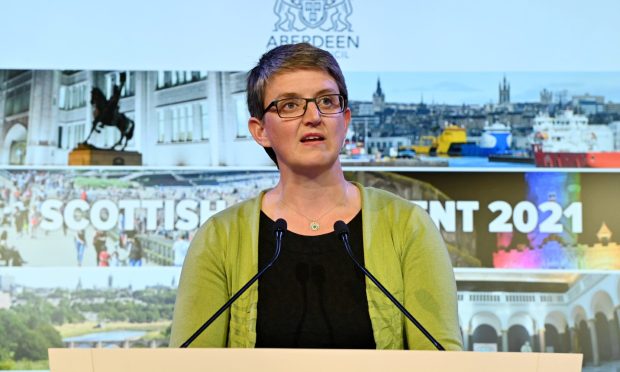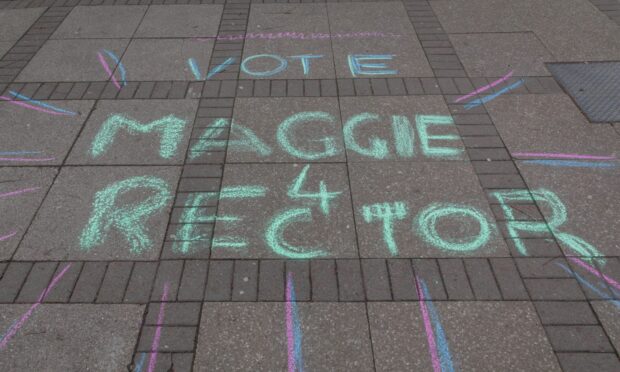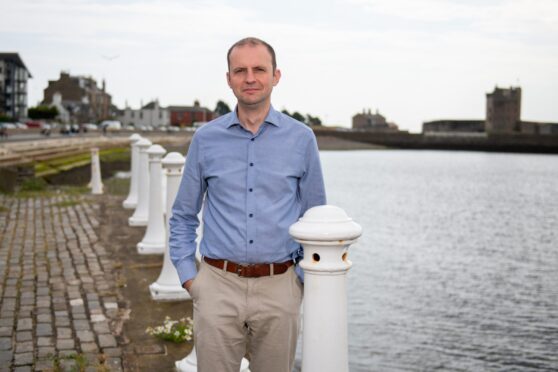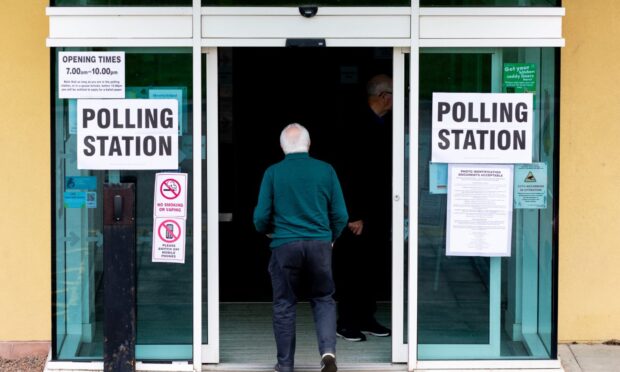Hilary Fowlie is campaigning to see assisted dying legalised after the heartache of watching her mum and both her in-laws suffering in death.
“It was terrible, so I would like to see the option given in the future,” Hilary told us.
The push to change the law in Scotland has stirred a heated and emotional debate.
We are sharing the stories of families affected, like Hilary’s, over three days and there are a range of views.
Holyrood has already looked at the proposals twice in recent years, and is preparing for a third complex round of talks on the emotive topic.
There is now a bill going through the Scottish Parliament but it is still at the public consultation stage – and it is generating a lot of interest.
If the proposals are passed, it will introduce the right to an assisted death if you are terminally ill and still deemed to be mentally competent.
‘It was terrible’
Hilary, from Hillside near Montrose, supports Dignity in Dying’s campaign for assisted dying to be legalised in Scotland after watching three members of her immediate family die in pain.
She said: “My mother-in-law Helen Fowlie had MS and she suffered for a long time.
“My father-in-law Christopher Fowlie had MND and my mother Isobel Macmichael had breast cancer, and I looked after them.”
Reflecting on the difficult period, she added: “It was terrible, so I would like to see the option given in the future.
“My mother-in-law said to me quite a few times she wished she had the choice.”
My mother-in-law said to me quite a few times she wished she had the choice.”
– Hilary Fowlie
Hilary added: “My father-in-law was in a nursing home and it was just awful.
“They both said they wished there was a choice they could have.
“My mum was the same, she used to speak about it and said she wanted it.”
Hilary said her mum was on lots of medication for pain, and says the experience has made up her mind that she would like control over her own death if possible.
“At the end she was on so much morphine and medication she didn’t know where she was and it is awful to think about what they had to suffer,” she added.
“It could have been easier.
“I know if it happened to me, I would not want that.
“If there was no hope, I don’t want to have to put my husband and my family through what we have had to go through.”
‘Dignity in dying’
Dignity in Dying is one of a number of organisations calling for the law on assisted dying to be changed in Scotland.
They say people should have a choice over where we die, who is present, and be able to have control over how it happens.
This is what MSP Liam McArthur hopes to introduce to Scotland with his Assisted Dying for Terminally Ill Adults (Scotland) Bill.
It is a polarising and controversial subject for many though, as death is something every person will one day have to face.
Over 150 medical professionals have written to Health Secretary Humza Yousaf to outline the reasons why they object to assisted dying being legalised in Scotland.
They claim it would undermine the legal duty of care they have to their patients.
Others cited international examples as a slippery slope, claiming the legalisation could be more extreme in reality than what is currently being proposed in Scotland.
Members of the public are being asked to have their say on proposals to change the law on assisted dying until December 22.
Read more on the assisted dying debate
- OPINION: ‘Introducing state-assisted suicide is not the answer’
- Assisted dying: What are the plans to change the law and should we have the right to choose when we die?
- A slippery slope? Assisted dying opponents take international concerns to Holyrood
